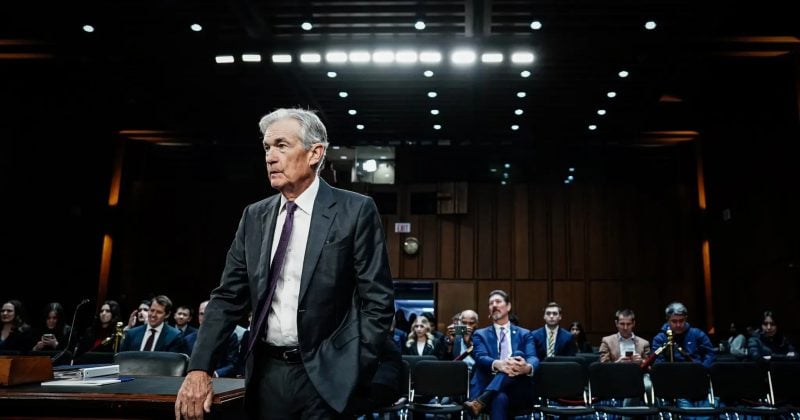Key Takeaways
- The Fede supports a regulatory framework for stablecoins to protect consumers, as stated by Chair Jerome Powell.
- Powell emphasized the need to balance innovation with safeguarding financial stability.
Share this article
The Fed supports efforts to establish a regulatory framework for stablecoins to protect consumers, said Chair Jerome Powell during his testimony to the Senate Banking Committee on Tuesday. He added that the central bank is “offering technical thoughts.”
The push for stablecoin regulation comes despite warnings from former Treasury Secretary Janet Yellen, who has repeatedly stressed the urgency of bringing these digital assets under regulatory oversight.
During the hearing, Powell, who previously likened stablecoins to regulated bank deposits and money market mutual funds, also stressed the need to reassess debanking, acknowledging the unintended consequences of regulation on the crypto industry.
He said he would be committed to collaborating with committee Chair Tim Scott to mitigate undue regulatory burdens and explore changes to ensure fair treatment for crypto businesses. The issue of debanking crypto firms has been highlighted as lawmakers continue to investigate its implications.
Regarding the Fed’s approach to monetary policy, Powell stated that there is no urgency to cut interest rates given the strong US economy and ongoing efforts to achieve a 2% inflation target.
According to Powell, the US economy grew 2.5% in 2024, driven by robust consumer spending. The labor market remains resilient, with monthly payroll gains averaging 189,000 over the past four months and unemployment at 4% in January.
While inflation has declined considerably over the past two years, it remains above target. Core personal consumption expenditure prices rose 2.8% in the 12 months through December, excluding food and energy costs, while total PCE prices increased 2.6%.
“We know that reducing policy restraint too fast or too much could hinder progress on inflation,” Powell said. “At the same time, reducing policy restraint too slowly or too little could unduly weaken economic activity and employment.”
The Fed has maintained interest rates at 5.25% to 5.5% since July, following aggressive hikes to combat inflation. Future policy adjustments will depend on incoming data, the evolving outlook, and the risk balance, according to Powell.
This is a developing story.
Share this article



